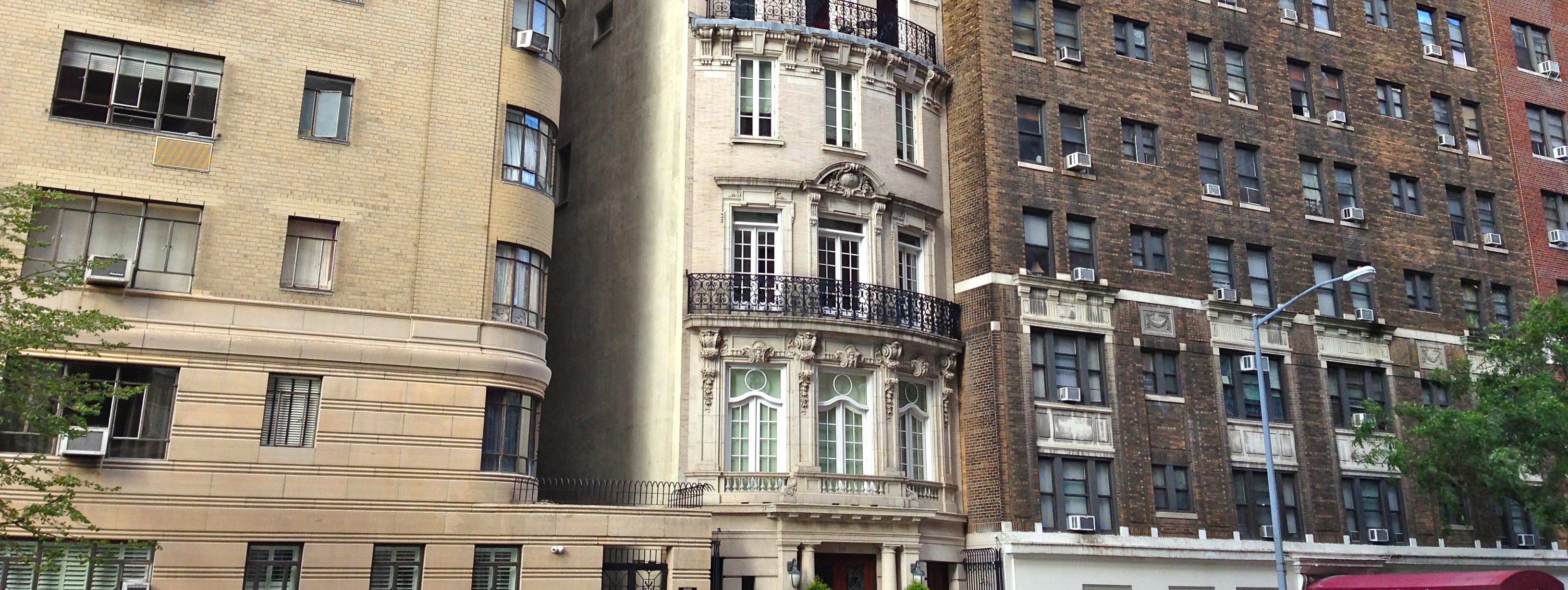Starting in 2010-2011, New York began addressing the burgeoning short term rental business via amendments to a host of laws: the Multiple Dwelling Law (Section 4. a. 8(a)), the Housing Maintenance Code (Section 27-2004. a. 8(a)), the Administrative Code (Section 27-265) and New York City Building Code (Section 310.1.2) which all prohibit short term rentals in Class A multiple dwellings. The aim was to ensure that such dwellings were used “for permanent residence purposes” — generally meaning that it became illegal to rent such a unit for less than thirty days.

The policy goals behind the bar to short term rentals were to prevent the circumvention of the strict fire safety standards applicable to hotels; prevent unfair competition to legitimate hotels; protect the rights of permanent tenants from having to endure having their buildings transformed into a form of hotel occupancy; and to preserve the supply of affordable permanent housing.
Just check the internet to see how well this has worked in New York City. Whether it is the largest entity, Airbnb, or smaller but similar businesses, or individual tenants, the number of listings on a daily basis whereby tenants seek to rent out their apartments is now estimated in the tens of thousands.

Aside from the substantial safety and security concerns that having an endless stream of inadequately vetted short term renters entering into and occupying Class A multiple dwellings obviously creates, the City’s enforcement of such illegal activity has, in a number of instances, shifted the blame from the tenant that is posting the listing and making the profit onto the owner of the building, who neither participated in nor consented to the illegal rental. The result has been substantial fines levied against owners who were completely blameless for the illegal activity and, in at least one instance, actually alerted the City to the illegal activity in the hope that the City would put a stop to it!
Owners have begun taking tenants (that they become aware of) who are in violation of the short term rental laws to court on eviction proceedings — with some recent success. But, certainly, the more economically prudent goal would be to try to stop the illegality before it occurs.
When the short term rental business began, my initial reaction was that the standard apartment lease already contained sufficient protection for owners (and I believe that it still does). The standard lease requires tenants to abide by all laws, restricts occupancy and requires compliance with statutes pertaining to sublets and roommates. Moreover, when a rent regulated tenant is involved, there are restrictions on what a tenant may charge a roommate or a subtenant.
However, as the problem has morphed from a drop to a flood, I have suggested that owners begin to take a more proactive approach, including the following:
- Reminding tenants–via a regular mailing–that short term rental may violate:
- The terms of the lease (which restricts occupancy)
- The Administrative Code of the City of New York and other statutes (which limit short term rentals)
- Real Property Law 226-b (which governs sublets)
- Real Property Law 235-f (which governs roommates)
- The Penal Code (which prohibits rent gouging)
- The Rent Stabilization Law (as applicable)
- Adding a rider to the lease that is a stand-alone regarding short term rentals. The rider that BBWG suggests not only addresses the restrictions on short term rentals, but has the tenant agree to indemnify the owner for any fines, penalties or costs incurred by reason of the tenant’s violation of these restrictions
- Have a staff member routinely examine the listings for short term rentals to determine if your apartments are “in play”
- Train door people and other building staff how to question persons seeking entry to the building to determine the nature of the occupancy–even if with the consent of the tenant
- Maintain a log of “guests” coming to each apartment; by compiling such a log, you can create a more comprehensive picture as to the frequency and duration of “gust” stays in a particular unit
- Consider registering with Sublet Alert to obtain alerts on listings for potential illegal activity
Short term rental operators justify their business model as part of the new “sharing economy”. However, the justification–even if worth of consideration–certainly requires legal compliance by all concerned. Tenants who moved into an apartment building expecting to have permanent neighbors, should not be forced to live adjacent to an ever changing unknown cast of characters. Similarly, Owners should not be placed at risk for fine by actions they neither take nor condone.

Sherwin Belkin is a founding partner of Belkin Burden Wenig & Goldman, LLP and works in the firm’s Administrative and Appeals Departments. This article is a repost from BBWG’s monthly newsletter.
